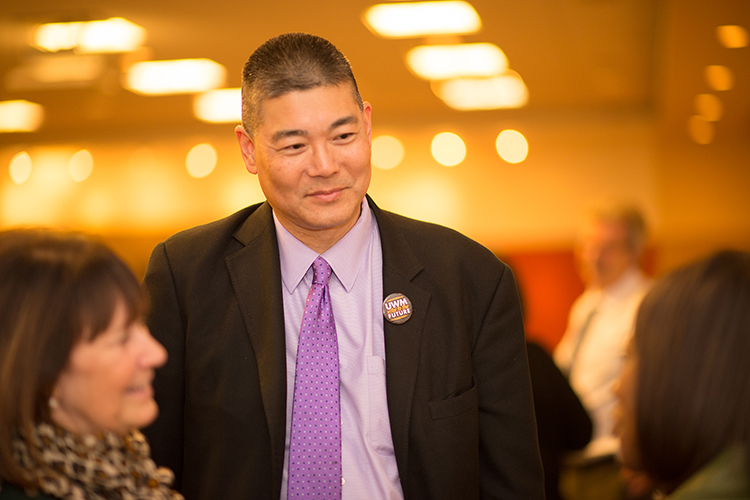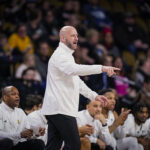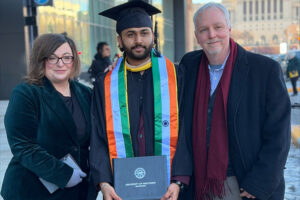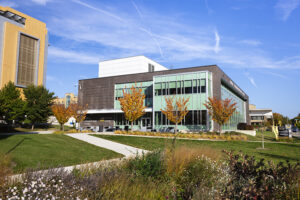Alan R. Shoho became dean of UWM’s School of Education and a professor of administrative leadership in April 2015. For 21 years, he had been at the University of Texas at San Antonio, where he was a professor and associate vice provost for academic and faculty support.
Shoho grew up in California and Hawaii, and planned to follow his father into electrical engineering. But after working with digital hardware and nuclear missiles, he decided his true passion was not for “saber rattling,” but for education. His research and teaching focus on educational leadership – and the study of assistant principals and new school principals is where he found his true passion.
Why did you apply for the position at UWM?
I emailed Gail Schneider (professor emerita), who is a long-time friend and colleague and asked her about it. She told me it was a good opportunity, but it wouldn’t be easy. She did say if I was up to a good challenge, then this was the place to be.
What are the biggest challenges facing the School of Education?
It can be encompassed in one word – budget. If you unpack that, there are several areas – like enrollment and retention – directly related to it. We have had five years of declining enrollment. We have gone from basically around 3,000 students in 2010 to about 2,150 in fall 2015.
I’m charging all the department chairs to draw up plans so that, come next fall, we’ve not only stopped the bleeding in our enrollment, but hopefully we will experience some growth. I would love to see the report next year show that we were up 100 students.
What is the school’s greatest strength?
I think we have very committed faculty, staff, and students. My biggest joy is when I walk around and talk to those committed people. We have some really fantastic, what I call “can-do” spirited people. I think with the right attitude you can accomplish almost anything, even without some of the resources. While we are under what some people call a crisis, I think there are a lot of opportunities there, too. If we can recognize those opportunities, they can turn the crisis into major wins for us.
Were the issues more challenging than you expected?
I started my job on April 1, and then we got the word about the (state) budget cut on April 2. I was fully aware of the budget and enrollment challenges the school was facing. What I can honestly say I probably didn’t fully appreciate was the complexity of working through some of these issues. UWM is really different than the institutions I’ve been affiliated with in the past, which were much more centralized in their processes. The shared governance was not as strong. To me, there are pros and cons to that. While I think it’s very laudable, the challenge it presents is that we’re not able to turn on a dime. We need to be much more agile.
What of the school’s partnerships with Milwaukee Public Schools and other school districts?
I am a firm believer that all the successful schools of education in the 21st century must have strong partnerships with school districts. I think M3 (a collaboration to improve student preparation involving UWM, MATC and Milwaukee Public Schools) is a big step in the right direction. We’re talking about improving our connections. You’re talking about three big bureaucracies coming together. If we can do that successfully, it would be massive.
What are key areas of these partnerships?
One of the things we can work on together will be those transition points – from grade school to middle school to high school to college. That’s one of the areas where we know students are failing because of the transition. If we can create a system that is more seamless, it will be better for students.
We also need to practice what we preach in terms of working more collaboratively. I would love to – at some point – have our faculty teaching maybe one course in a public school and have public school teachers teaching in our program.
Have you faced weather challenges in moving from warmer climates (Texas, California, Hawaii)?
I can tell you the summer was fantastic here. It was the first summer in 21 years I didn’t suffer much. The Texas summers can be pretty miserable. People are already telling me to be prepared – winter is coming. I basically tell people I’m trading four to five months of summer for four to five months of winter. If you have the right attitude, you can live anywhere.








